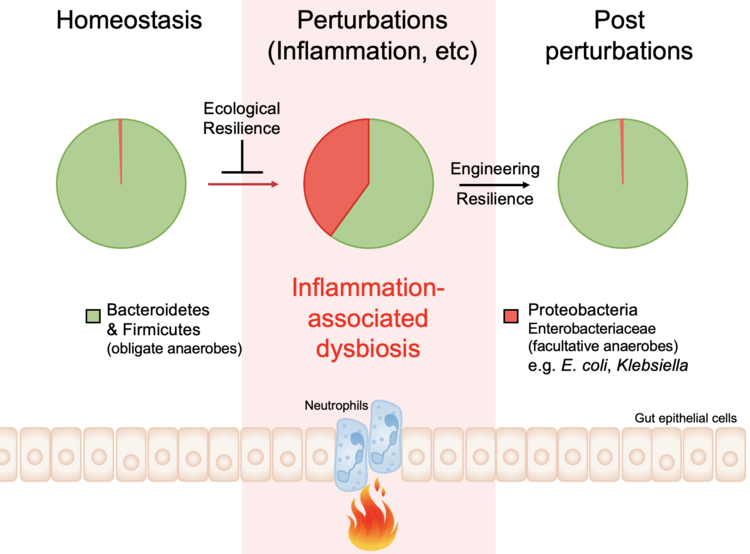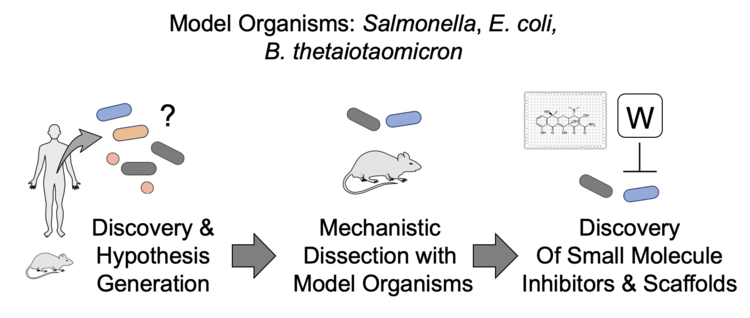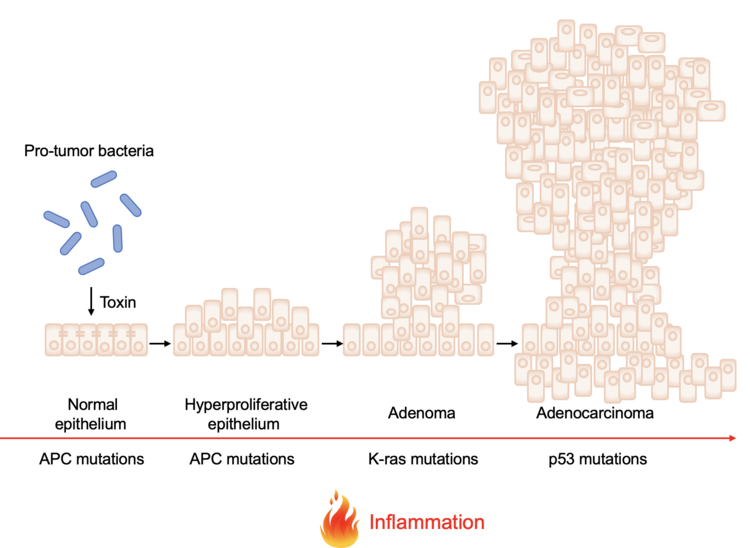
What We Do
In our lab, we focus on the metabolic interactions that dictate the changes or resilience of the microbiota. Insight into such interactions would enable precise manipulation of gut microbiota composition, thus restoring a balanced community in situ and improving host health. To precisely manipulate the microbiota, we use a multidisciplinary discovery pipeline that consists of next-generation sequencing, bacterial genetics and a mechanistic understanding of bacterial physiology in vivo. This pipeline allows us to discover druggable targets of the microbiota and translate our finding using high-throughput screening.
Project 1:
Resilience mechanism of gut commensals
- Elucidate the mechanisms by which commensal gut bacteria scavenge iron by “stealing” iron-chelating compounds produced by other bacteria (xenosiderophores) during bouts of gut inflammation.
- Explore how commensal iron acquisition modifies host nutritional immunity
- Understand how bacteria conserve intracellular iron to sustain resilience during gut inflammation.
Project 2:
Metabolic engineering of gut microbes to promote commensal resilience
- Identify unique metabolic features of certain members of the microbiota.
- Based on these unique features, rationally design ways to engineer members of the microbiota.
- Translate resulting intervention strategies using high-throughput chemical screen.
Project 3:
The roles of bacterial toxin in promoting colorectal cancer development
- Understand how certain cancer-promoting bacterial toxins reshape the metabolic environment in the gut to favor bacterial fitness.
- Manipulate the metabolic environment in the gut to reduce the colonization of carcinogenic bacteria.

Project 1:
Resilience mechanism of gut commensals
- Elucidate the mechanisms by which commensal gut bacteria scavenge iron by “stealing” iron-chelating compounds produced by other bacteria (xenosiderophores) during bouts of gut inflammation.
- Understand how bacteria conserve intracellular iron and how such response contributes to their resilience during gut inflammation.
- Explore how other essential micronutrients shape the resilience of gut microbes during episode of intestinal inflammation.

Project 2:
Metabolic targeting of gut microbes to promote commensal resilience
- Identify unique metabolic features of certain members of the microbiota.
- Based on these unique features, rationally design ways to precisely target members of the microbiota.
- Translate resulting intervention strategies using high-throughput chemical screen.

Project 3:
The roles of bacterial toxin in promoting colorectal cancer development
- Understand how certain cancer-promoting bacterial toxins reshape the metabolic environment in the gut to favor bacterial fitness.
- Manipulate the metabolic environment in the gut to reduce the colonization of carcinogenic bacteria.